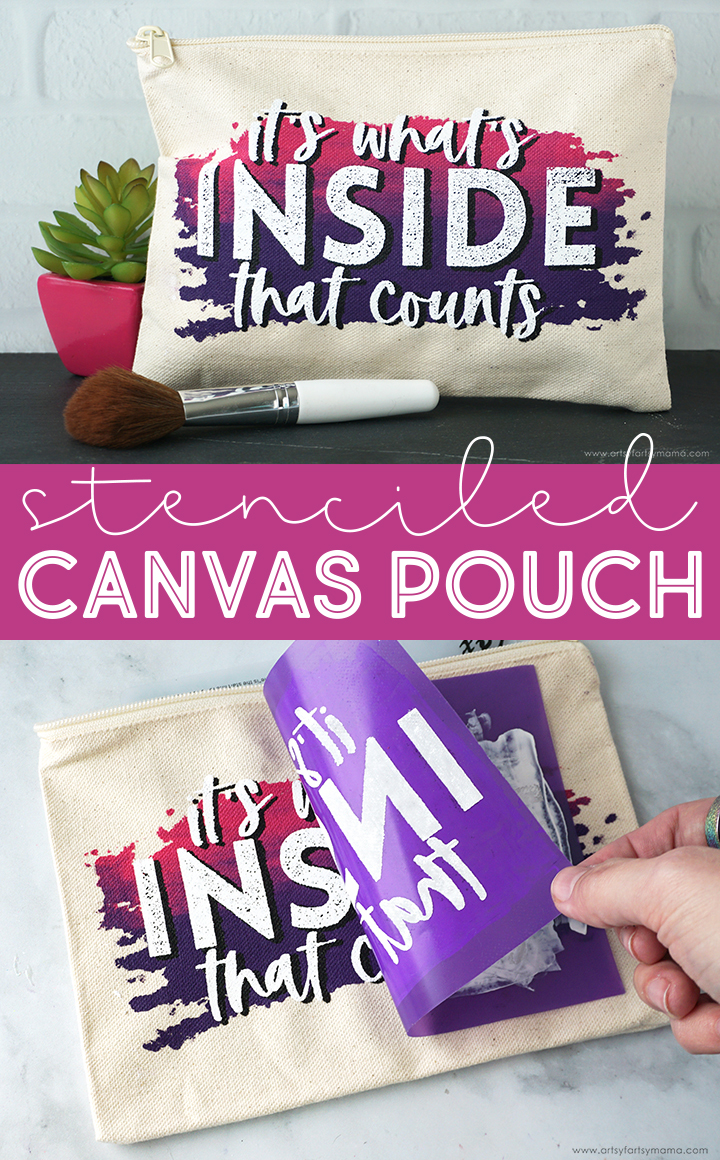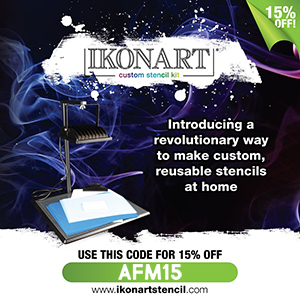Create your own custom Stenciled Canvas Zipper Pouch using Ikonart stencils!
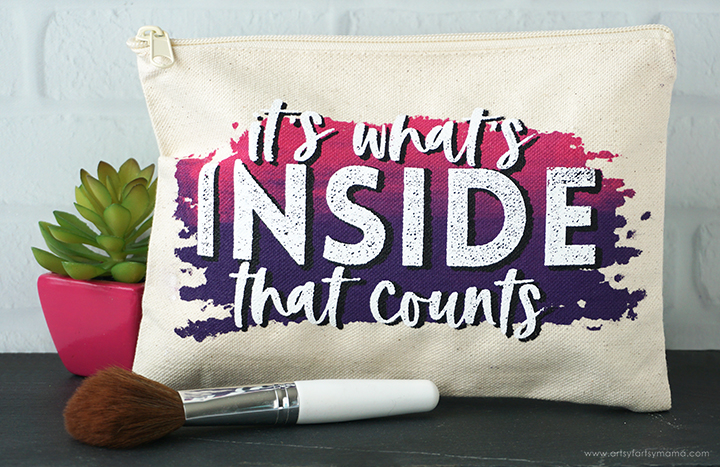
I'm always grabbing blank items when I see them in the store, you know, "just in case"! For example, this canvas zipper pouch was less than $2, and I've had it saved to create something special with it for years. My niece needed something to hold her makeup in while traveling, and inspiration hit! I've been so excited to show you this Stenciled Canvas Zipper Pouch I made using my Ikonart kit. I'm also sharing the FREE design so that you can make some stenciled canvas pouches for yourself or to gift to friends!
New to making reusable stencils? Here's how to Get Started with Ikonart!
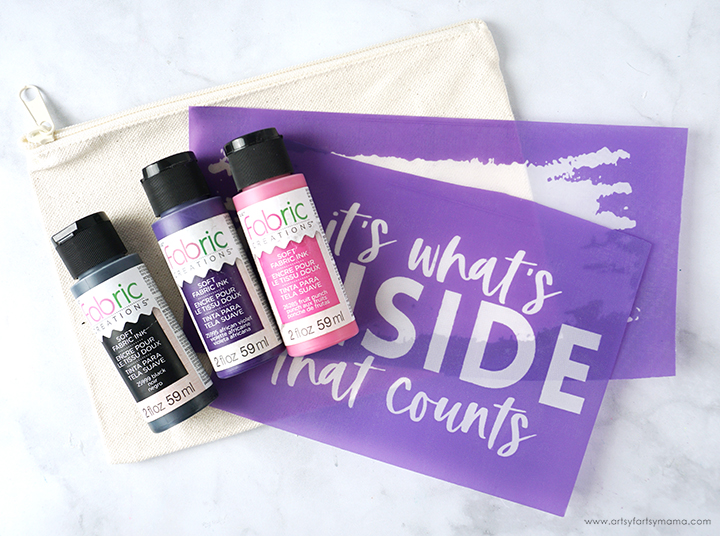
To make your own Stenciled Canvas Zipper Pouch, you will need these supplies:
*Save 15% on Ikonart supplies when you shop with code AFM15
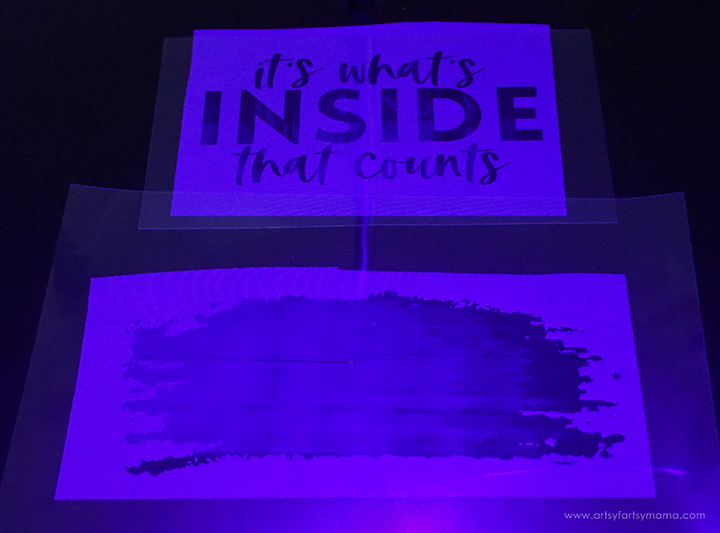
To make a stencil, you need to start with a printed design. Download the "It's What's Inside That Counts" Design (for personal use only) and make sure to print the design as dark as possible on either inkjet or laser Ikonart Printer Film.
The next step in the process is to expose the stencil film. For this project, you need to use the purple Ikonart Textile Film instead of the blue Ikonart Stencil Film. The purple film works just like the blue film, but it's stickier and a little more stiff, which makes it perfect for using on fabric and other textured or difficult surfaces.
Set up the exposure stand with UV LED Light by following the directions included in the kit. The Textile Film is light sensitive, so be careful to keep it out of sunlight and bright lights before exposure. Cut a piece of the film the same size as the design print.
Lay the piece of film down on the base of the stand with the textured side facing UP. Place the printed design on top of the stencil film, making sure it's right-side up. This means that if there are words in your design, you should be able to read them.
Lastly, place the clear exposure sheet (found in the stencil film pack) on top and press it down well to seal the design tight against the stencil film. Turn the exposure light on and expose the film for 30-35 seconds.
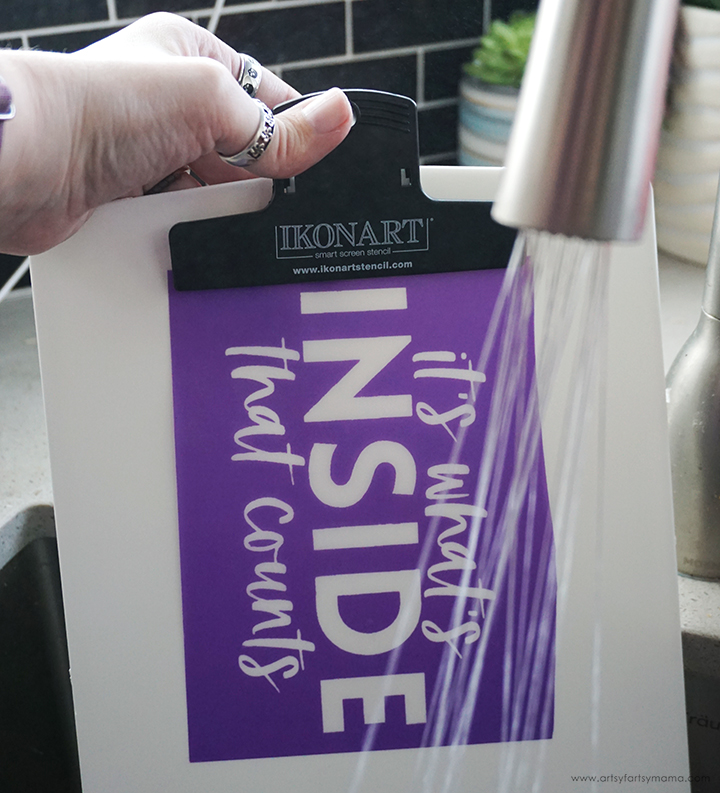
The final step in the stencil-making process is to washout, or rinse, the stencil. Clip the exposed stencil film to the Ikonart clipboard with the shiny side (carrier sheet) touching the clipboard. Use the kitchen sink sprayer to rinse the stencil film with warm water until the design shows through and becomes completely clear. The washout process shouldn't take more than 3 minutes.
Gently blot excess water off the the stencil, and hang or lay flat to dry for about 45 minutes. When the stencil is dry, you shouldn't see any water spots or discoloration. Once completely dried, place the it back on the exposure stand and expose it again for at least 2 minutes without the clear cover sheet on top. This extra exposure time will increase the durability of the stencil so you can get as much use out of it as possible.
Use a permanent marker and write "back" on the carrier sheet (shiny side) on the back of the stencil. This helps later when you put the carrier sheet and the stencil back together when you are done using it.
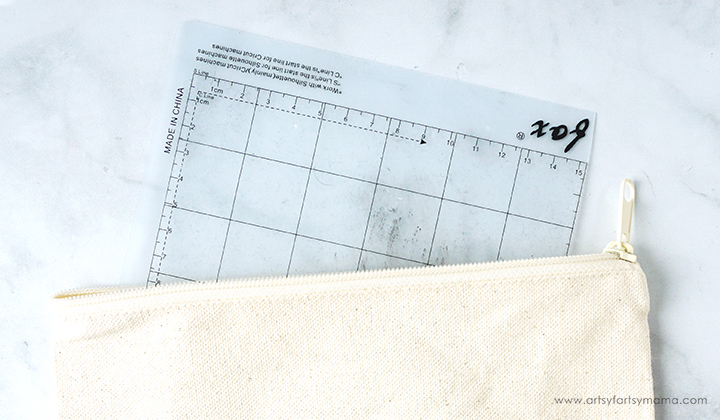
Using an adhesive textile mat helps make screen printing so much easier. The mat holds the fabric in place, and helps to block the paint or ink from bleeding through to the back. On smaller projects, cut the mat into quarters. For adult hoodies, shirts, and larger fabric projects, the full-size mat or a half-sized mat works perfectly.
Remove the carrier sheet from the front of the mat, and slide the mat into the pouch with the adhesive-side up. Press the canvas fabric down well against the mat, and use a lint roller to remove any debris from the front.
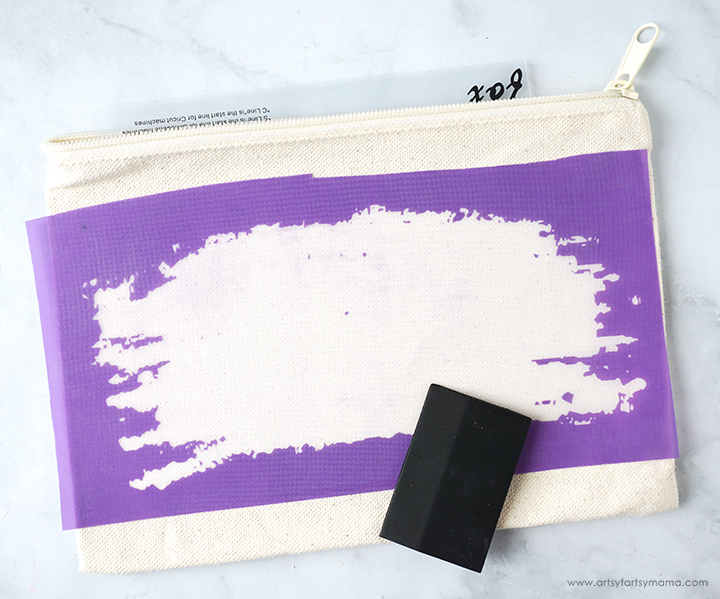
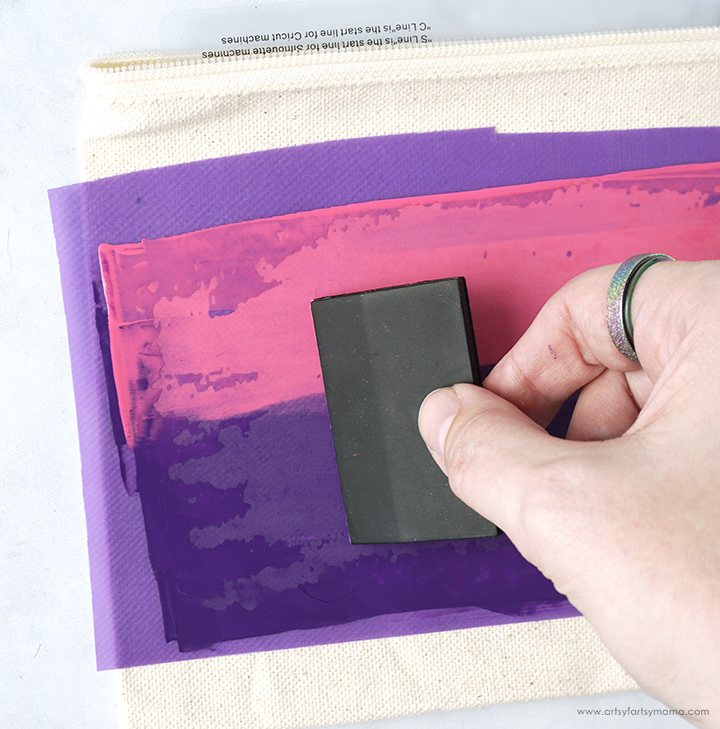
I decided to blend both pink and purple fabric paints for the swash instead of just one color. To do this, add a small lines of pink and purple paint along the side of the stencil, with the colors meeting in the center. Use the squeegee to lightly pull the paint to the right. With the excess paint still on the squeegee, go over the center a couple of times to blend the colors. Scrape away the excess paint and put it onto a paper towel or if they aren't mixed too much, back into the bottles.
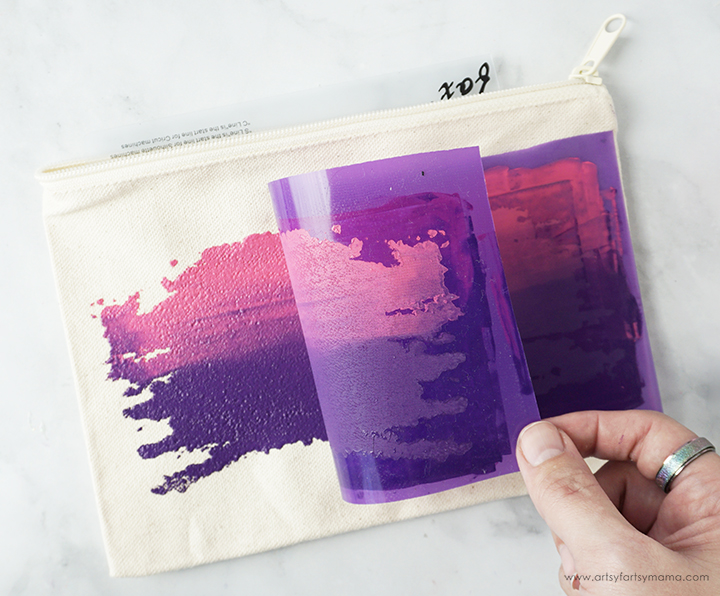
Grab one corner and slowly peel the stencil up. Look underneath to make sure the area is covered. If it needs any more coverage, put the stencil back down and add more paint. If it looks fine, keep peeling the stencil away until it is completely removed from the pouch.
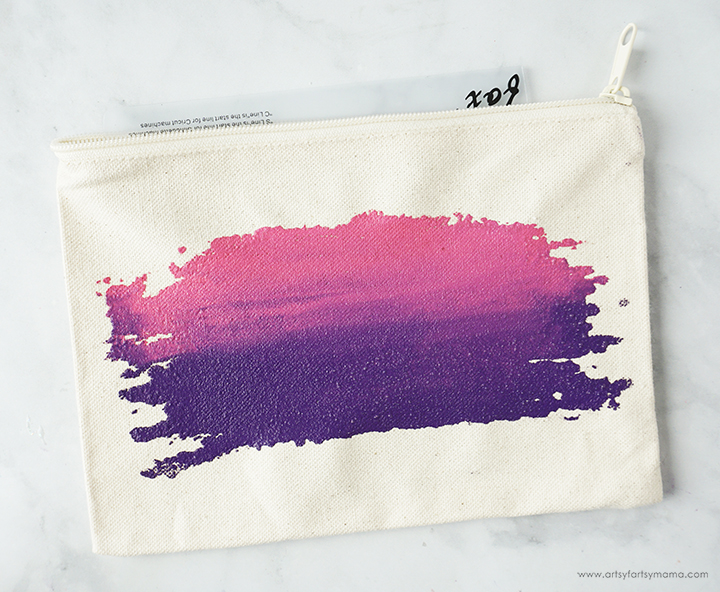
Wash the stencil immediately while the paint is still wet (instructions below). Set the pouch aside and allow the paint to dry completely before moving on to the next step.
Quick tip: To help the paint dry faster on fabric projects, get out your hair dryer and go over it for a few minutes using low heat. It works great and saves you so much time!!
Stencil Washing
To wash your stencil so that it can be used again and again, first get the clipboard wet so your stencil doesn't stick to it. Place the stencil on the clipboard with the textured side up, and lightly rub the stencil under cold running water to remove all the paint.
Do not rub or scrub the adhesive side of the stencil, and NEVER use anything other than water to wash the stencils. To prevent the stencil from breaking down, don't ever leave the stencils to soak.
Remove the stencil from the clipboard and lay it down with the adhesive side up. While the stencil is still wet, place the carrier sheet onto the stencil so that the word “BACK” is readable. Hang or lay the stencil flat to dry completely.
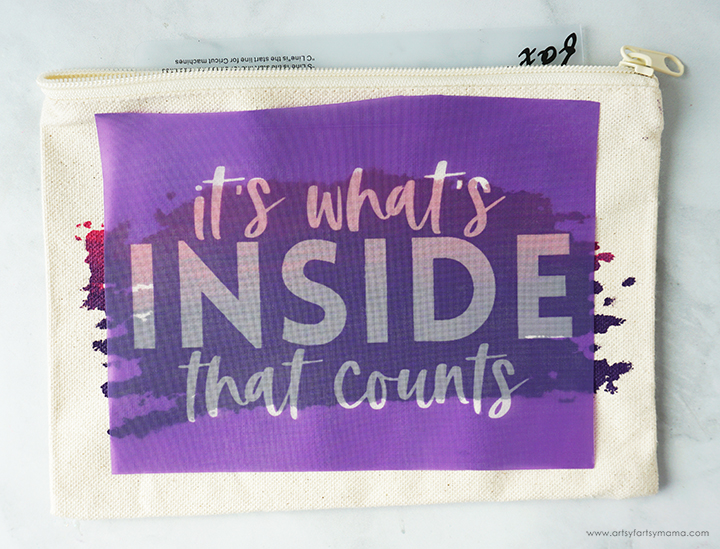
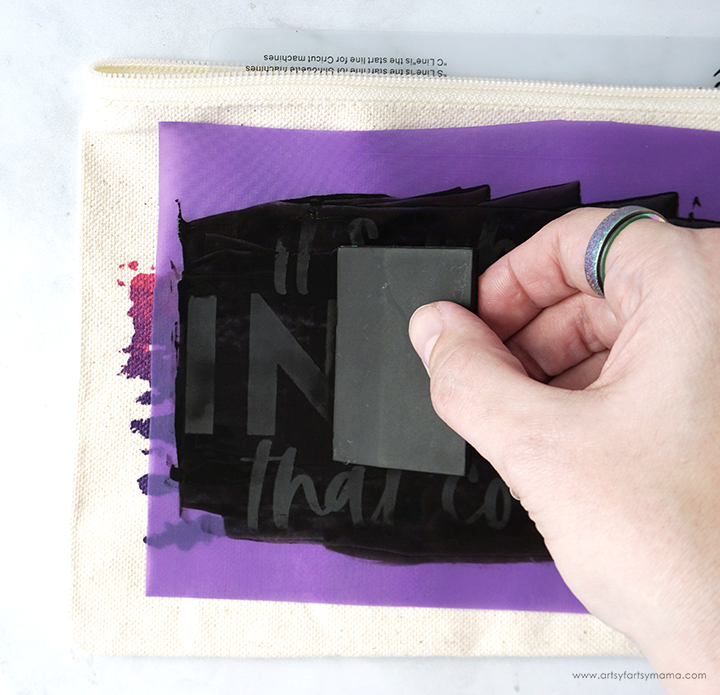
Cover the stencil with black fabric paint, starting with a line of paint along one edge of the stencil. Lightly drag the paint across using a clean squeegee until the entire stencil is covered.
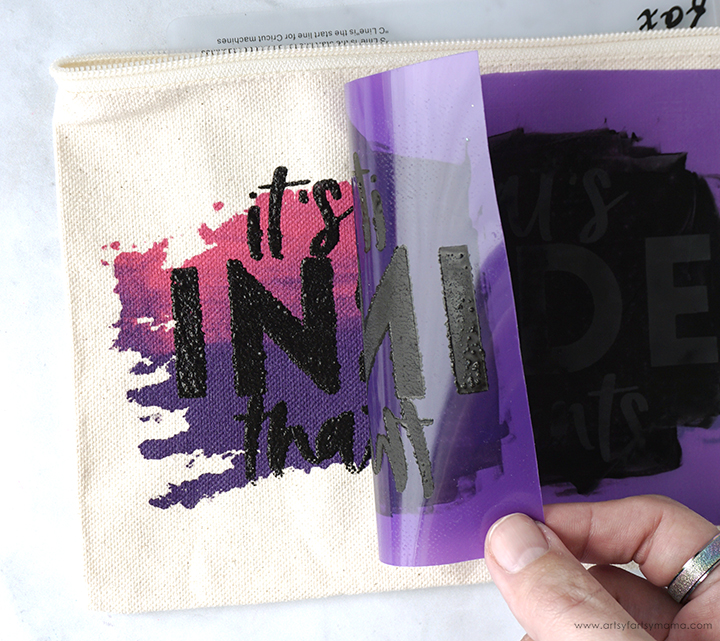
Start at one corner and peel the stencil up. Check for full coverage as you go, and lay it back down if you need to go over any areas again.
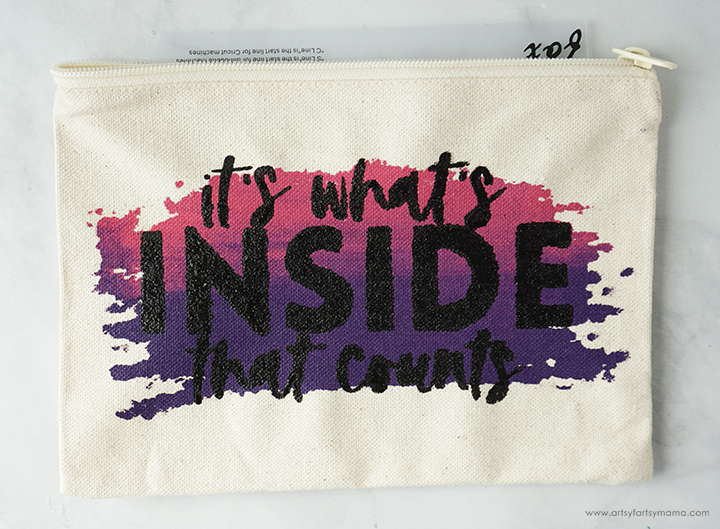
As soon as I started dragging the paint over the stencil, I could tell that my black paint was too thin. As I pulled up the stencil, I was proven right by the paint bleeds. I wanted to make sure to show you that even I make mistakes!! Don't let mistakes get you discouraged. There's usually a way to fix it - and worst case, there's always another side of the pouch!
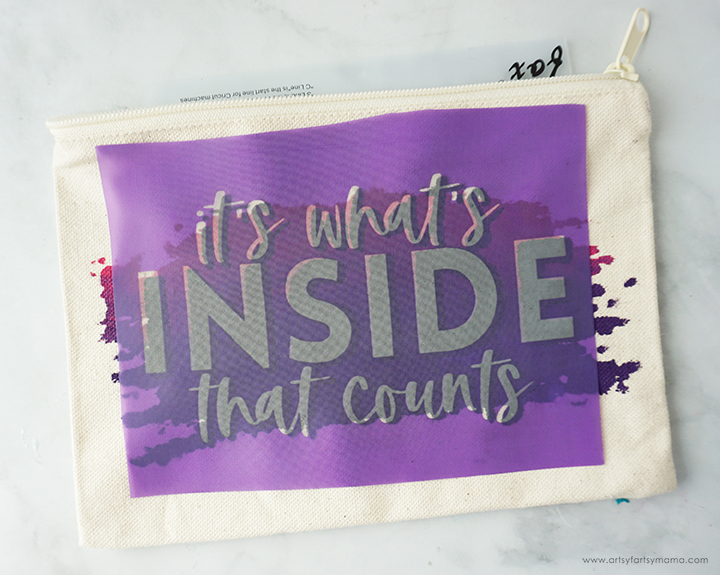
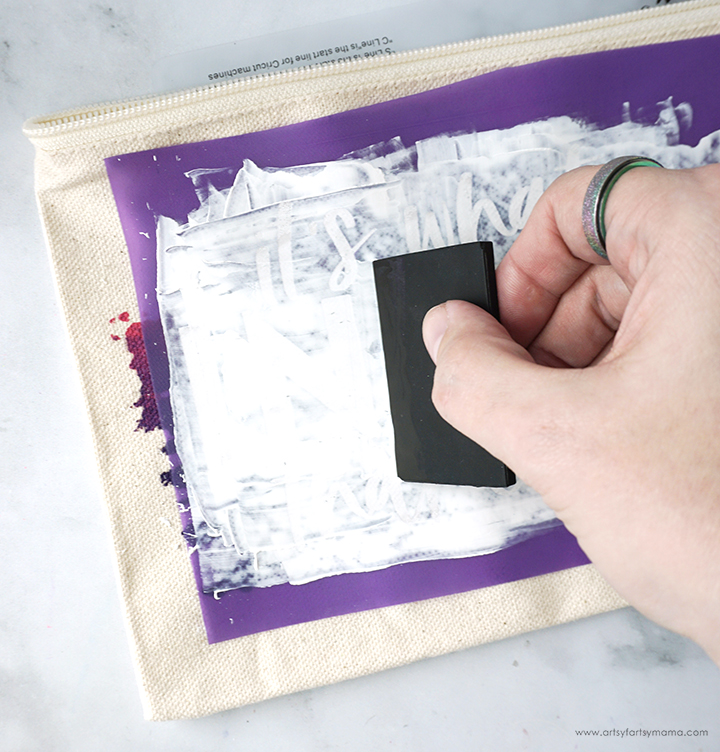
I made sure that my white fabric paint was a good thickness (it should ideally be a chalk paint consistency), and then lightly dragged the paint along the stencil with the squeegee.
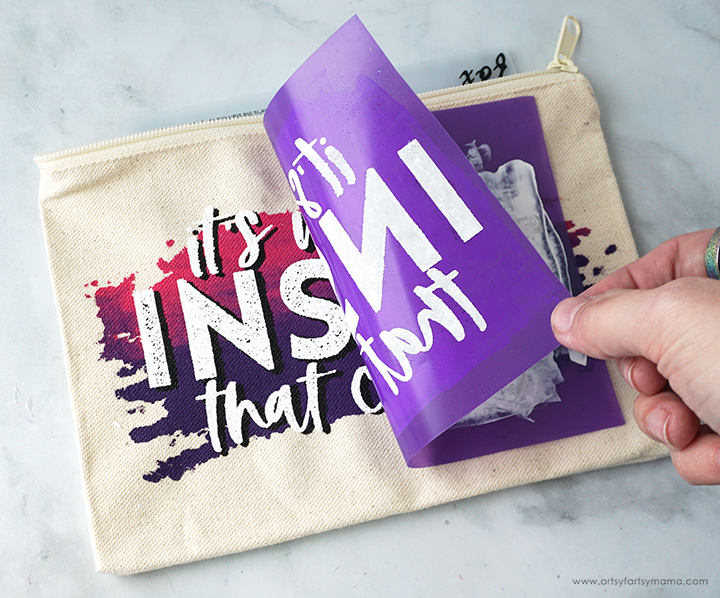
I breathed a HUGE sigh of relief after I started pulling up the stencil. The coverage was perfect this time, and was consistent across the entire stencil.
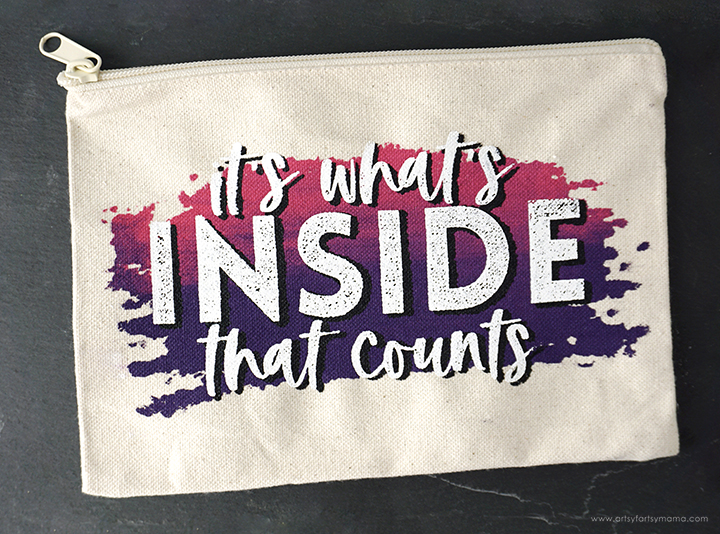
Having a project come out better than you originally planned is such a great feeling! I love how the white paint pops so much more than the black. Since I was nervous, I added the paint with a lighter touch this time. It actually ended up giving the white layer a more "distressed" look, which I love!!
Let the fabric paint dry for at least 24 hours, and then heat-set the paint using an iron or EasyPress. The pouch is completely washable, and the design won't peel or wrinkle like HTV.
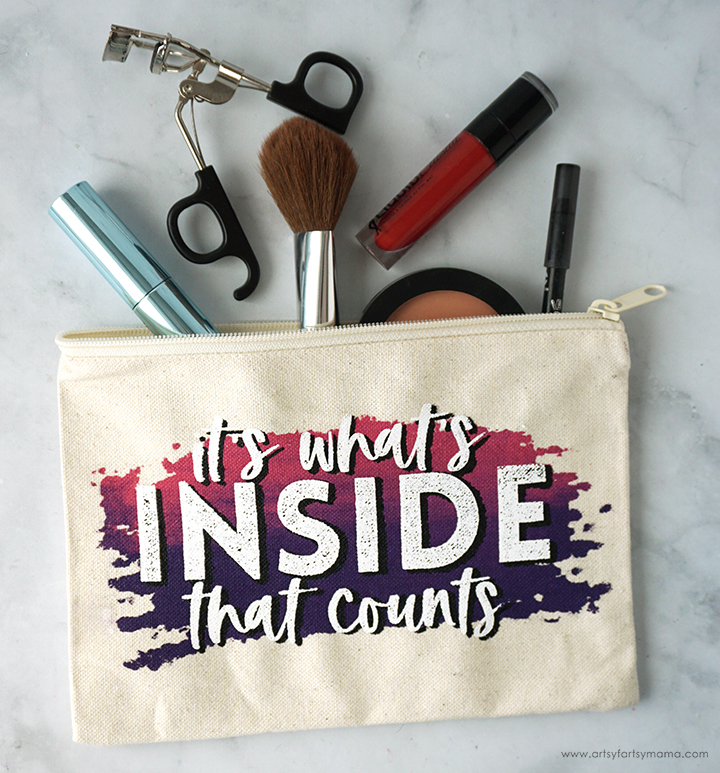
Now you can fill the pouch with anything you want - makeup, pencils and pens, jewelry, and so much more! I made this pouch for my niece who needed something to put her makeup in when she travels, so this will work perfectly for her AND it looks cute!

I am beyond thrilled with how this stenciled pouch turned out! Ikonart makes it so easy for me to make my creative ideas come to life, and how versatile these custom stencils are. I'd love to hear what you think about this Stenciled Canvas Zipper Pouch, or if you want to know more about reusable stencils. If you've made your own stenciled projects, I would love to see your creations! Share them on Instagram, Facebook, or leave a comment/photo on the project pin on Pinterest! #AFMCrafts
Don't forget to Pin, Like, and Share!
